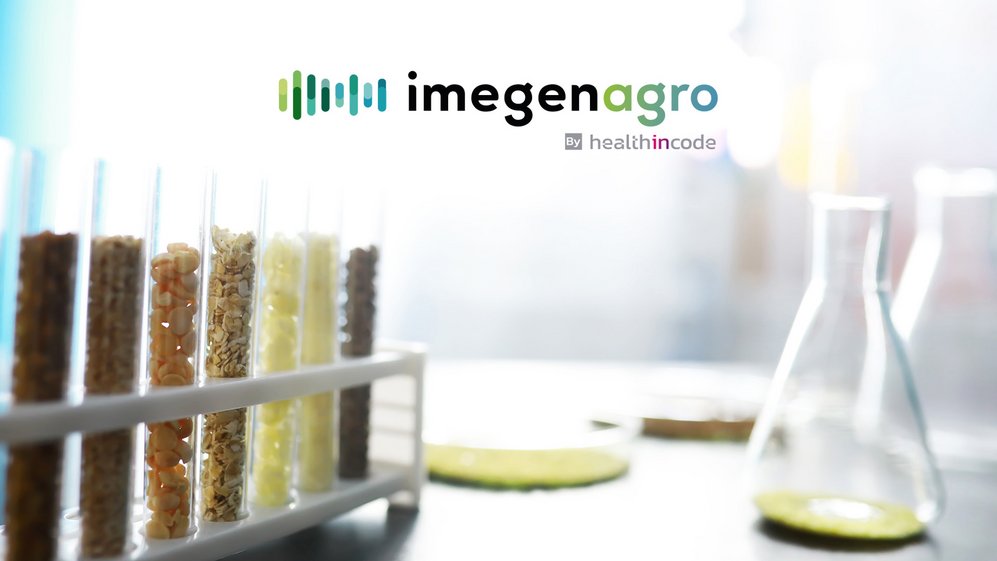Now the newest member of ENGA, for this newsletter, we profile Imegen Agro and detail their expertise at a time when independent testing is more important than ever.
Introducing Imegen Agro…
Based in Spain and part of the Health in Code Group, Imegen Agro brings a wealth of experience in applying advanced genomic science to food safety, traceability, and transparency, through molecular food analysis. Benefitting from state-of-the-art infrastructure and scientific innovation, with a particular focus on GMO detection, they are a crucial ally in today’s fast-evolving regulatory landscape.
Their focus ranges from detecting hidden allergens like soy or fish in complex food products, to verifying species authenticity in meat, seafood, and plant-based items. They are also recognised for their expertise in detecting GMOs, even in highly processed foods, essential in addressing economically motivated food fraud and safeguarding consumer trust.
State of the art tech applied to the agri-food industry
What sets them apart is their access to cutting-edge technology—from PCR and Next-Generation Sequencing to bioinformatics—and their ability to translate complex science into real-world safety and compliance tools for food producers. They provide the scientific certainty required to enforce labelling accuracy, ingredient integrity, and food safety standards.
The lab uses a number of methods which together make up a powerful analytical portfolio (see footnote), underpinning their commitment to reliable, science-based food control.
Why laboratories matter in the "new genomic era"
As the EU considers deregulating New GMOs (or New Genomic Techniques/NGTs), the role of independent laboratories like Imegen Agro is more important than ever. Whilst they acknowledge that deregulation of NGTs could significantly alter the current paradigm of food production, potentially accelerating innovation and sustainability, they warn that any regulatory change must not come at the expense of transparency or consumer rights. If NGT-derived foods are not detectable or labelled, consumers could be left in the dark—and trust in the food system could erode.
To avoid this, Imegen Agro believes regulatory frameworks must evolve in step with science, in order to maintain scientific rigour and public trust. That means ensuring labs have access to detection methods and reference materials so they can continue to provide reliable testing. Without that, traceability—the cornerstone of food safety—could be undermined. To this end, Imegen Agro are the organisers of an open letter from laboratories to EU law makers, warning that the current legislative plans risk undermining transparency in the food sector and calling for detection methods for category 1 NGTs to meet their customers’ needs to know whether NGTs are present in food and feed products.
Labs as guardians of trust
According to the lab, independent laboratories will have a critical role in ensuring scientific oversight and maintaining analytical integrity under any new regulatory scenario. They are ready to:
• Develop and validate detection methods for NGTs where feasible
• Work with regulators to define standardised testing protocols
• Educate and advise food producers on emerging genomic risks and traceability requirements.
• Offer independent verification services to industry stakeholders seeking compliance.
Looking Ahead
In 2025 and beyond, Imegen Agro aims to expand its genomic capabilities to help food producers meet both current and future regulatory demands. For example, by developing new analytical solutions for NGT detection, in anticipation of regulatory changes.
As discussions about NGTs gather pace, ENGA will work together with Imegen Agro and its wider group of members, helping lead the charge to promote our shared values of transparency, traceability, and food safety.
Notes:
Some of the methods used by the lab explained:
• PCR: Detects GMOs, specific species, and allergens through targeted DNA/RNA amplification.
• NGS (Next-Generation Sequencing): Provides comprehensive genetic analysis for food authenticity and biodiversity.
• Metagenomics: Identifies microbial contaminants without cultivation.
• Microsatellites: Confirms species identity and traceability in plant and animal products.
• Metabarcoding: Detects all species in complex mixtures — ideal for seafood and multi-species product verification.
